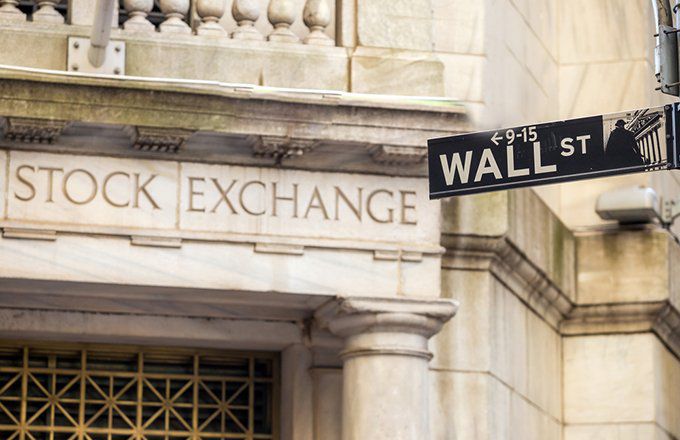- Joined
- Jul 11, 2001
- Messages
- 2,424
- Reaction score
- 1,059


 fourpillarfreedom.com
fourpillarfreedom.com
Dow? Or did you just mean which index fund do you like the best?
If so, VTSAX is where I hold about 55-60% of my investments. Very low expenses, no loads, very low turnover/tax efficient (when held in taxable account), low dividends (and thus more tax efficient), cap weighted, and simple.

I'm a Fidelity guy and basically have about 1/2 of my taxable account in a Nasdaq index fund, and the other half in a horizon fund. I have some new money to add to the taxable account and instead of adding to these two other categories, I thought I'd put it into a Dow or total market fund. What I'm finding is that a lot of funds have the same exposures (at least their top 10 assets have a LOT of overlap).
I'm a Fidelity guy and basically have about 1/2 of my taxable account in a Nasdaq index fund, and the other half in a horizon fund. I have some new money to add to the taxable account and instead of adding to these two other categories, I thought I'd put it into a Dow or total market fund. What I'm finding is that a lot of funds have the same exposures (at least their top 10 assets have a LOT of overlap).
I'm a Fidelity guy and basically have about 1/2 of my taxable account in a Nasdaq index fund, and the other half in a horizon fund. I have some new money to add to the taxable account and instead of adding to these two other categories, I thought I'd put it into a Dow or total market fund. What I'm finding is that a lot of funds have the same exposures (at least their top 10 assets have a LOT of overlap).
Rather than deciding what funds to invest in each time you have a new sum to invest, I would simply decide on an asset allocation that meets your goals and is within your risk tolerance, and make deposits accordingly to keep everything in balance.I'm a Fidelity guy and basically have about 1/2 of my taxable account in a Nasdaq index fund, and the other half in a horizon fund.
So I just opened a fidelity account and I noticed that it costs nothing to invest in fidelity's funds. However, if you buy vanguard funds like vtsax (vanguard total market admiral shares) they charge 75 dollars per trade. On face value, it seems advantageous to invest in fidelity's zero fees fund, but it has 1000 fewer stocks (3500 vs 2500) and is newer so it is relatively untested.
Vanguard's funds have multiple billions and are tax efficient. My understanding is that if you invest 15,000 then it's worth it to buy vanguard funds as the difference between how much you lose from the 75 dollar charge is overcome by the relatively lower tax efficiency of fidelity funds (0.98 vs 0.5). I like how vanguard operates and I've been with them for several years. I think it is advantageous to still invest in vanguard funds through fidelity but maybe I'm missing something?
Invest in VTI instead.
It is the ETF equivalent of Vtsax.
You can generally buy ETFs with zero commissions.
I believe the fidelity zero fund fees are unique to them and you cannot transfer them out if you decided to change brokerages. You would have to sell and deal with the tax consequences
So I just opened a fidelity account and I noticed that it costs nothing to invest in fidelity's funds. However, if you buy vanguard funds like vtsax (vanguard total market admiral shares) they charge 75 dollars per trade. On face value, it seems advantageous to invest in fidelity's zero fees fund, but it has 1000 fewer stocks (3500 vs 2500) and is newer so it is relatively untested.
Vanguard's funds have multiple billions and are tax efficient. My understanding is that if you invest 15,000 then it's worth it to buy vanguard funds as the difference between how much you lose from the 75 dollar charge is overcome by the relatively lower tax efficiency of fidelity funds (0.98 vs 0.5). I like how vanguard operates and I've been with them for several years. I think it is advantageous to still invest in vanguard funds through fidelity but maybe I'm missing something?
I'm confused. I've never encountered this fee with Vanguard. Are you trying to trade multiple times within a 30 day window? I've heard Vanguard discourages this. I buy shares of VTSAX monthly on an Auto debit from my checking account. Don't know if it's the frequency or the auto debit, but I have never been charged anything other than the miniscule expense ratio of the fund.
On the other hand, there is nothing wrong with the Fidelity zero fee funds. Haven't looked to closely at them, so just make sure they track their respective index well. The 0.04% difference doesn't move the needle enough for me to make the switch
Since Vtsax is a mutual fund, most non Vanguard brokerages will charge a fee to purchase.
If you use Vanguard, it's not a big deal. But why pay the fee when you can use the ETF alternatives if you use Fidelity or another brokerage?
The Fidelity zero fee funds are technically fine but you can't transfer them out of Fidelity. You would have to sell. If this is a taxable account, then you would get hit by the tax man.
Which funds are you thinking of?For those that have a greater than 10-15 yr horizon you’ve gotta have either total market exposure (VTI) or your own blend of large and small cap funds.
If you don't have VTI then you could theoretically buy some ratio of VOO, VB, and VO to approximate it. VTI is by far my largest position but I also like dividends so I have smaller positions in VYM, VIG, IDV, NOBL, TDIV, and DES, plus about 30-40 individual stocks from following the dividendgrowthinvestor.com newsletter. As far as non stock funds I hold PCI (a PIMCO CEF), HYD, ANGL.Which funds are you thinking of?
VTI or VTSAX for a Roth IRA? 31, married, no kids yet, second year resident. Thanks in advance.
VTI or VTSAX for a Roth IRA? 31, married, no kids yet, second year resident. Thanks in advance.
If you don't have VTI then you could theoretically buy some ratio of VOO, VB, and VO to approximate it. VTI is by far my largest position but I also like dividends so I have smaller positions in VYM, VIG, IDV, NOBL, TDIV, and DES, plus about 30-40 individual stocks from following the dividendgrowthinvestor.com newsletter. As far as non stock funds I hold PCI (a PIMCO CEF), HYD, ANGL.
It's a boring strategy but it should be pretty satisfying when I get to the point that I'm generating 6 figures entirely in income regardless of capital appreciation.
